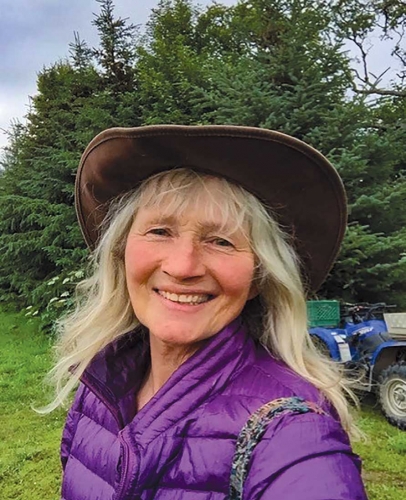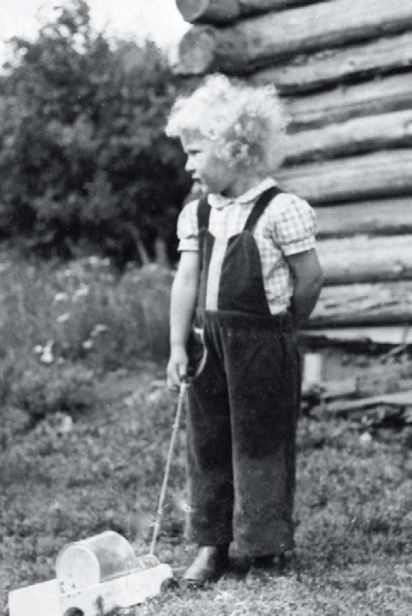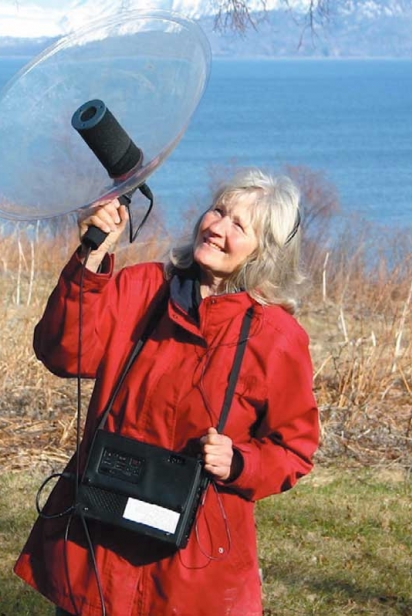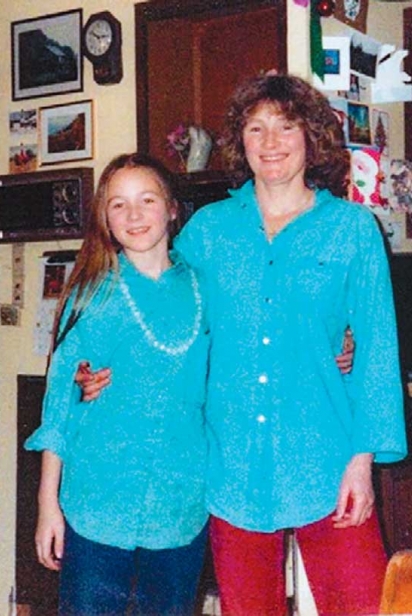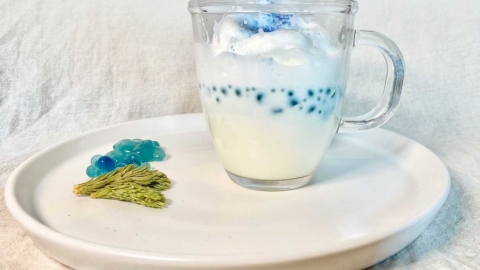A Glass Half Full
Water Wisdom and Life with Mossy Kilcher
Mossy Kilcher has been drinking Alaska water all her life. At 80, Mossy has filled her cup from springs, tasted millennia of glacier melt, and warmed her mug many times with teas made from spring water and wild harvested plants.
Mossy, who lives just six miles from the homestead near Homer where she was raised, values the simple purity of water and the life it gives. While water may quench her literal thirst, Mossy’s bubbly thirst for life is seemingly unquenchable. I met Mossy first through her music, and then through working to showcase her song and love for sound at the Anchorage Museum. But, really from the first time we spoke on the phone, she has felt like a friend and mentor whose intent seems to be to guide others in living with their glasses half full.
Whenever I call Mossy, she always does something more than just talk. She chops kindling, makes stew, tends her animals, or goes out for a long, brisk walk. I have the sneaking suspicion she may not ever sit down, unless, that is, to play her guitar, or to quietly perch and gather bird songs.
Mossy released her landmark album, Northwind Calling, in 1977 under her name at the time, Mossy Davidson. The album was recently re-pressed by Tompkins Square records in 2020, and the vinyl quickly sold out. Northwind Calling’s compilation of songs written over decades is a love letter to Alaska.
Her clear voice sings of the landscape and weather alongside her tender, deft playing of guitar and woodwinds with the occasional bird call from her own significant (and ever growing) archive of recordings. Mossy has a kind of generosity in her music, each song a gift or offering. Her own musical knowledge passed to her niece, the singer Jewel, who visits Mossy nearly every year. Of course, extended family is also famed outside of the musical realm for the reality series Alaska: The Last Frontier, and for the cookbook, Homestead Kitchen.
Mossy Kilcher grew up, and still lives, with the closeness to the land and water that comes from relying on it for sustenance. Her parents fled Switzerland for Alaska during World War II. Here they harvested, gathered, hunted, and raised nearly all their food and collected and hauled water.
One exception of this “Alaskatarian” lifestyle was coffee. Mossy relays, “My mom, as far back as I can remember, was addicted to coffee. As far back as I can remember, my mom would walk 12 miles to get a big can of coffee. Every morning she had a little coffee with fresh milk—I think I got my love of coffee from my mom… I can see myself milking the cow, the cream comes to the top of the milk, mom made whipped cream. Fresh cow cream in coffee is the real latte, ‘latte’ meaning milk of course, maybe a little honey.” I happen to know Mossy takes an espresso machine on car camping trips, so the passion is inherited. When I drink my own latte in the morning, albeit with store bought milk, I think of Mossy sipping hers and feel an appreciation for the simple, rich goodness of milk and coffee.
Mossy will occasionally pause with a cup of herbal tea by the fire, especially in winter. Her teas are made from herbs she harvested—dandelion root, homegrown peppermint, or yarrow. Having seen inside her cozy cabin from our Zooms, I imagine her—always in movement—swaying in her swing chair clutching a ceramic mug, humming with dogs underfoot.
But water is her prized drink: “You know what is funny, I do not have a drinking thing. I just love plain, crystal-clear water, especially from a really nice spring source. That’s it to me, water is the best… I think water will do when I sing.” She does say, “I remember Jewel would have me snap peas for her voice.” Now there is a remedy I have not heard of before!
Just water has served her well. Her voice rings with joy and strength when she speaks, a glimmer in her eye. She is sensitive to her vocal changes with age, but the short clips and home recordings she sends me have a wisdom and resonance, no weakness. Everything she sings or says rings with insight, composed with meaning. And, I feel like I need to jot every word down.
Mossy shares that sometimes when she needs strength she walks over to her childhood spring. “Where I grew up on my homestead, I go and drink water and get water from that spring. That water is in my blood. I am partially composed of that water. The water I drank as a little girl helped me grow at the time and made me who I am. You know, I always feel great when I drink that water like a part of me might be missing. I think there might be something to that.”
Yes, there must be. Our bodies are mostly water after all. Water makes us who we are, shapes us in our solid but still organic and fluid forms which change shape and sound over time. I think about my own body, made from the water of North Carolina, Rhode Island, Alaska, and dozens of other places I have visited. I take a sip from my glass. Tap water from Anchorage travels through me and becomes me and will be a part of my cells for years to come.
Mossy continues, “Think about glacier water—now that water holds what the world was like when this earth was being formed. Drinking it is drinking part of that era! The glacier rivers are always muddy. I drank it once. Glacier water has a really interesting flavor—it’s partly melted ice from millions of years ago and part of the ground you are on. The present and the past in your mouth—it’s amazing.”
Truly, it is, though now some glacier waters can contain contaminants and are not safe to drink. Mossy cares deeply about the natural world. She shared with me once that she wished that headlines would include not only human lives lost due to climate change. “What about a headline like, ‘Entire bird flock killed by storm,’ ‘Pod of whales lost?’” she asked. Alaska news might relay information about receding glaciers, but usually just as graphs and maps. What about an article relaying the loss of ice that holds the wisdom of millennia in blue-white stillness for us to observe, touch, taste?
I can hear Mossy move outside. She must be taking out her dogs, headed to harvest or walk on her homestead lands. Her voice becomes a bit distant. She must be looking up, chin tilted from her phone, “And, you know, the air is just a large river above earth, moisture is surrounding us each minute. Another layer of water we can live in, less dense than the ocean. Think about it, when rain is falling—wow!— the air is holding all of this water, when you picture an ocean above your head that is falling down on top of you.”
As I write this article, a cold rain falls outside in Anchorage. I had thought it rather gloomy. But as I draft, I hear the echo of her voice, “Rain fall, rain fall down. I hear your face forever shining. I hear your voice forever singing. Spirit light as the morning air. I know I’ll find you again somewhere.” Suddenly, the rain feels like a miracle. Mossy has a way of transforming the simple details of Alaska life. Mossy’s lively farewell rings in my ears “G’bye. Until soon, if my voice will hold.” I hold her voice and words as surely so many do, and will, through her music. With her simple, clear lyricism, a drop of water becomes a whole ocean of wisdom.
Originally published in Issue No. 26, Winter 2022


